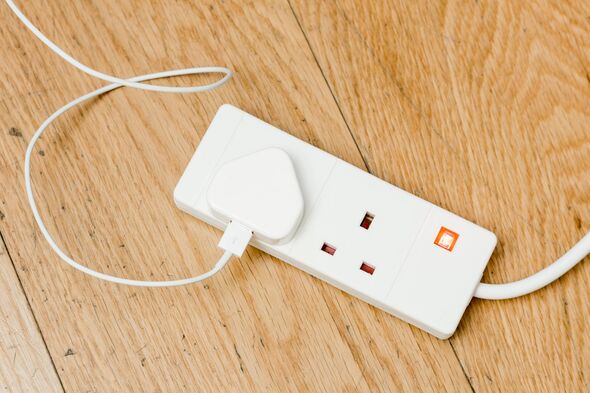Lifestyle
UK Households Urged to Avoid Extension Leads in Kitchens

Households in the United Kingdom are being cautioned about the fire hazards associated with using extension leads in kitchens. As modern kitchens become increasingly equipped with various appliances like air fryers, coffee machines, and toasters, the lack of sufficient plug sockets has led many homeowners to rely on extension leads. This practice, however, poses significant risks, according to electrician James Harrison of Fusion Electrical.
Modern kitchen appliances often require large amounts of power. James Harrison explained that plugging multiple high-powered devices into a single extension lead can lead to overloading, which creates dangerous heat build-up. “The danger is that the damage often happens inside the cable where you cannot see it. By the time scorch marks or a burning smell appear, the risk could already be high,” he warned.
The combination of moisture and electricity further complicates the safety of using extension leads in kitchens. “Water and electricity are never a good mix,” Harrison stated. The presence of water near sinks, kettles, or hobs can significantly increase the risk of electrical hazards.
In addition to fire risks, overloading extension leads can also damage the appliances themselves. “High-powered gadgets need a steady supply of electricity,” Harrison added. An overloaded lead may cause voltage drops, potentially shortening the lifespan of devices or leading to their failure.
Harrison emphasizes that extension leads should only be used as a temporary solution. “If you are regularly short of plug sockets in the kitchen, the safest option could be to have a professional install extra outlets,” he advised. This one-time upgrade could prevent future problems and enhance safety.
When using extension leads, it is crucial to consider the wattage of appliances. While a kettle or a toaster may function properly when used alone, running multiple high-powered gadgets through the same lead can exceed its capacity. Harrison recommends opting for extension leads that bear a British Standards kite mark, as cheaper, unbranded options may not withstand the demands of modern appliances.
“Extension leads are meant for temporary use. Using them as a long-term fix in the kitchen could increase the risk of overheating,” he cautioned. Kitchens are prone to steam and splashes, making the placement of electrical leads near water sources particularly dangerous.
Harrison also advised vigilance when using extension leads. If users notice scorch marks, a burning smell, or a hot cable, they should unplug the lead immediately and refrain from using it again. By following these guidelines, homeowners can significantly reduce the risk of fire hazards in their kitchens and ensure the safety of their households.
-

 Health3 months ago
Health3 months agoNeurologist Warns Excessive Use of Supplements Can Harm Brain
-

 Health3 months ago
Health3 months agoFiona Phillips’ Husband Shares Heartfelt Update on Her Alzheimer’s Journey
-

 Science1 month ago
Science1 month agoBrian Cox Addresses Claims of Alien Probe in 3I/ATLAS Discovery
-

 Science1 month ago
Science1 month agoNASA Investigates Unusual Comet 3I/ATLAS; New Findings Emerge
-

 Science4 weeks ago
Science4 weeks agoScientists Examine 3I/ATLAS: Alien Artifact or Cosmic Oddity?
-

 Entertainment4 months ago
Entertainment4 months agoKerry Katona Discusses Future Baby Plans and Brian McFadden’s Wedding
-

 Science4 weeks ago
Science4 weeks agoNASA Investigates Speedy Object 3I/ATLAS, Sparking Speculation
-

 Entertainment4 months ago
Entertainment4 months agoEmmerdale Faces Tension as Dylan and April’s Lives Hang in the Balance
-

 World3 months ago
World3 months agoCole Palmer’s Cryptic Message to Kobbie Mainoo Following Loan Talks
-

 Science4 weeks ago
Science4 weeks agoNASA Scientists Explore Origins of 3I/ATLAS, a Fast-Moving Visitor
-

 Entertainment4 months ago
Entertainment4 months agoLove Island Star Toni Laite’s Mother Expresses Disappointment Over Coupling Decision
-

 Entertainment3 months ago
Entertainment3 months agoMajor Cast Changes at Coronation Street: Exits and Returns in 2025









